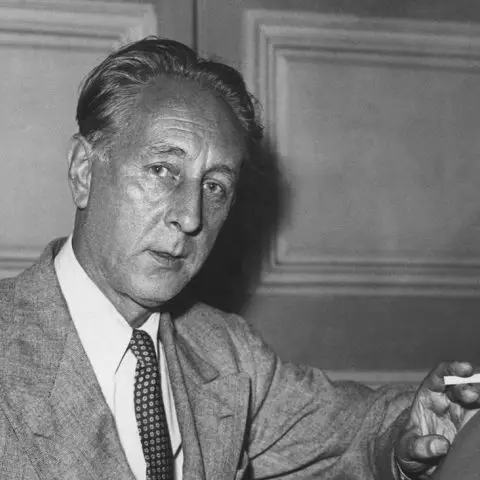
Birthday of Bohuslav Martinů
Bohuslav Martinů was a prolific Czech composer whose innovative works blend rhythmic dynamism with lyrical expressiveness, making a distinctive mark on 20th-century classical music
Early Life and Musical Beginnings
Bohuslav Martinů was born on December 8, 1890, in Polička, Bohemia, then part of the Austro-Hungarian Empire, now the Czech Republic. Raised in a bell tower where his father was a fire watchman, Martinů was immersed in music from a young age, showing great talent in violin. He entered the Prague Conservatory but was eventually dismissed for “incorrigible negligence.” Despite this setback, Martinů pursued a career in music, initially as a violinist with the Czech Philharmonic Orchestra before focusing entirely on composition.
Career and Musical Development
Martinů left for Paris in 1923, where he was influenced by a variety of contemporary musical styles and composers, including jazz, Neo-Classicism, and the French Impressionists. His style is noted for its eclectic approach, combining elements from Baroque to modernism, often infused with characteristics of Czech folk music. During World War II, Martinů was forced to flee Europe, eventually settling in the United States, where he continued to compose prolifically and taught at various institutions, including the Mannes School of Music and Princeton University.
Importance in Music
Bohuslav Martinů is recognized as one of the most prolific and versatile composers of the 20th century. His extensive output includes operas, symphonies, chamber works, and concertos, characterized by rhythmic vitality, rich harmonies, and lyrical melodies. Martinů’s music, while not part of the mainstream repertoire, is highly respected in classical music circles for its originality and effective synthesis of diverse musical elements.
Contributions to Flute Repertoire
Martinů’s works for flute highlight his innovative use of the instrument and his ability to integrate it within varied ensembles:
Flute Sonata, H. 306 (*titled by composer as First Flute Sonata): Composed in 1945, this work is admired for its lyrical expressiveness and rhythmic drive, reflecting his mature compositional style.
Chamber Music: Sonata for Flute, Violin and Piano, H 254 (1937 Paris)
Promenades for Flute, Violin and Harpsichord, H 274 (1939 Paris)
Madrigal-Sonata for Flute, Violin and Piano, H 291 (1942 New York ). While not exclusively for flute, these pieces include significant parts for the instrument, showcasing its versatility within a chamber ensemble.
Legacy
Bohuslav Martinů passed away on August 28, 1959, in Liestal, Switzerland. His legacy is maintained through numerous recordings, a dedicated foundation, and ongoing performances of his work worldwide. Martinů’s music remains a vital part of the 20th-century classical music landscape, celebrated for its inventive qualities and its deep, emotive impact.
Bohuslav Martinů died in 1959

